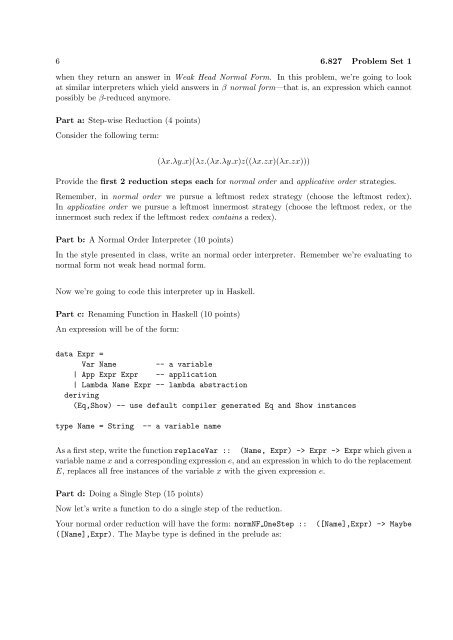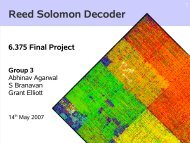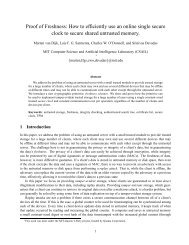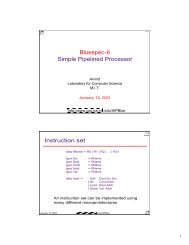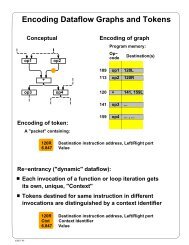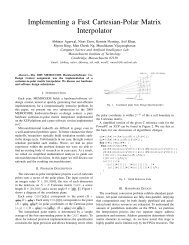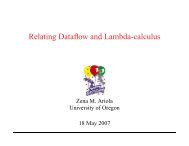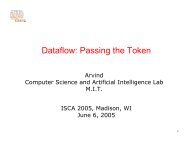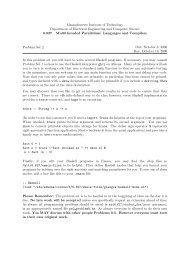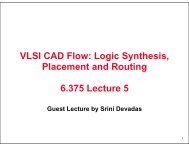Problem Set 1 - Computation Structures Group - MIT
Problem Set 1 - Computation Structures Group - MIT
Problem Set 1 - Computation Structures Group - MIT
Create successful ePaper yourself
Turn your PDF publications into a flip-book with our unique Google optimized e-Paper software.
6 6.827 <strong>Problem</strong> <strong>Set</strong> 1<br />
when they return an answer in Weak Head Normal Form. In this problem, we’re going to look<br />
at similar interpreters which yield answers in β normal form—that is, an expression which cannot<br />
possibly be β-reduced anymore.<br />
Part a: Step-wise Reduction (4 points)<br />
Consider the following term:<br />
(λx.λy.x)(λz.(λx.λy.x)z((λx.zx)(λx.zx)))<br />
Provide the first 2 reduction steps each for normal order and applicative order strategies.<br />
Remember, in normal order we pursue a leftmost redex strategy (choose the leftmost redex).<br />
In applicative order we pursue a leftmost innermost strategy (choose the leftmost redex, or the<br />
innermost such redex if the leftmost redex contains a redex).<br />
Part b: A Normal Order Interpreter (10 points)<br />
In the style presented in class, write an normal order interpreter. Remember we’re evaluating to<br />
normal form not weak head normal form.<br />
Now we’re going to code this interpreter up in Haskell.<br />
Part c: Renaming Function in Haskell (10 points)<br />
An expression will be of the form:<br />
data Expr =<br />
Var Name -- a variable<br />
| App Expr Expr -- application<br />
| Lambda Name Expr -- lambda abstraction<br />
deriving<br />
(Eq,Show) -- use default compiler generated Eq and Show instances<br />
type Name = String -- a variable name<br />
As a first step, write the function replaceVar :: (Name, Expr) -> Expr -> Expr which given a<br />
variable name x and a corresponding expression e, and an expression in which to do the replacement<br />
E, replaces all free instances of the variable x with the given expression e.<br />
Part d: Doing a Single Step (15 points)<br />
Now let’s write a function to do a single step of the reduction.<br />
Your normal order reduction will have the form: normNF OneStep :: ([Name],Expr) -> Maybe<br />
([Name],Expr). The Maybe type is defined in the prelude as:


